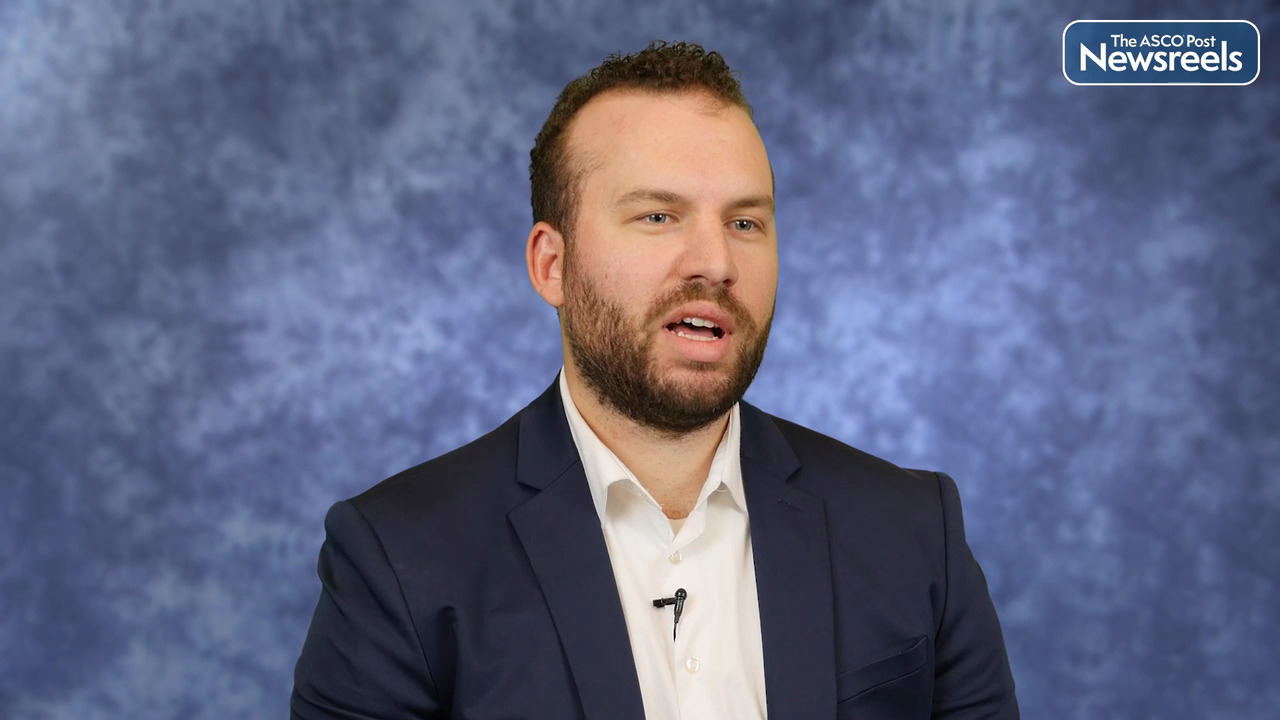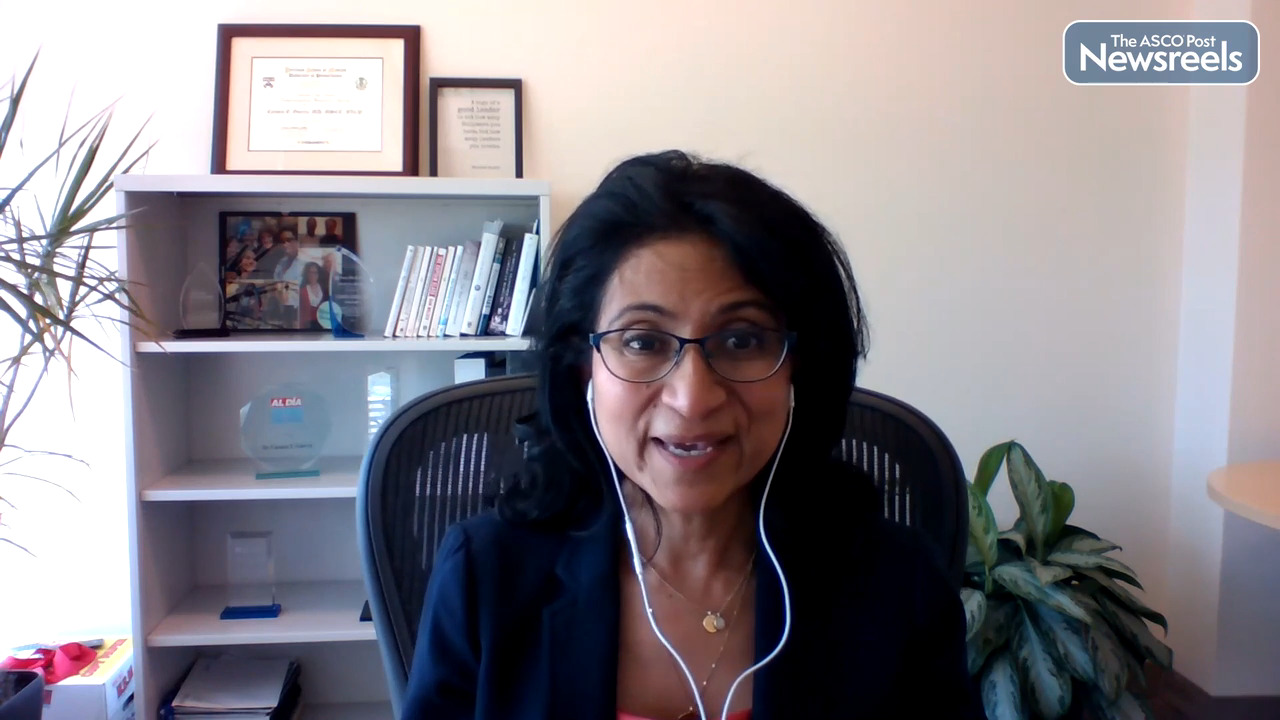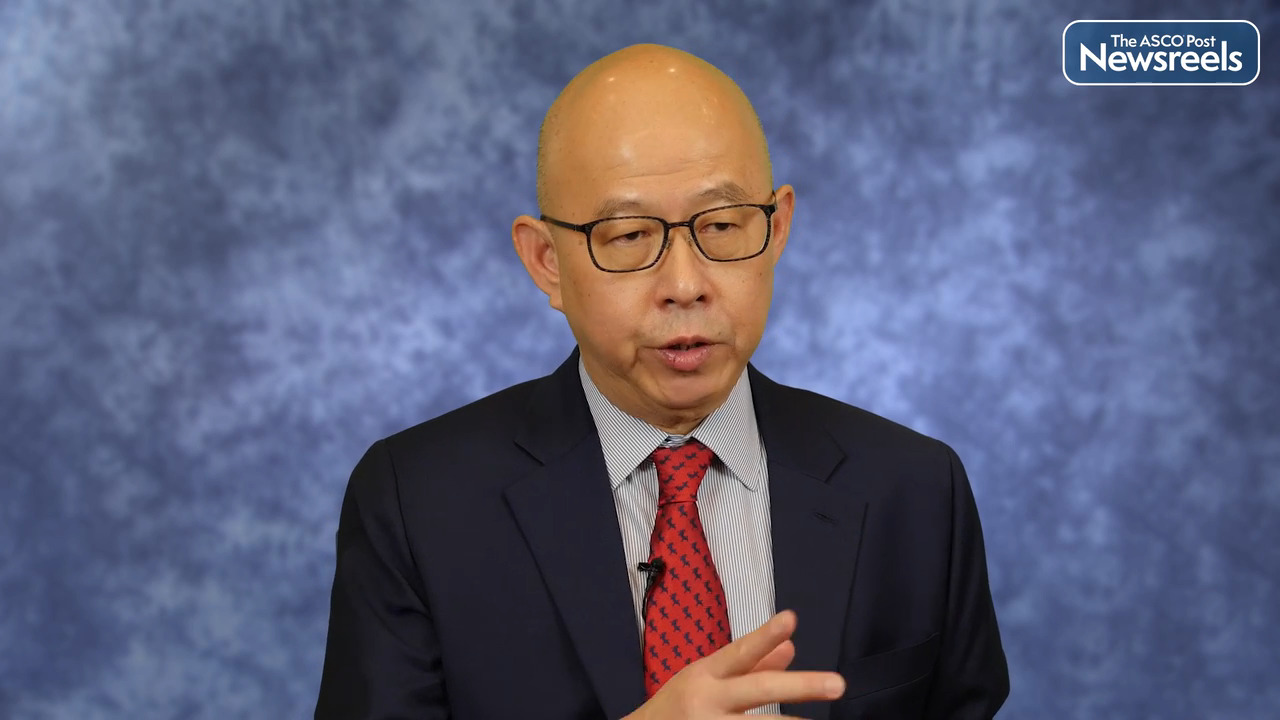Sherry X. Yang, MD, PhD, on Breast Cancer: New Recurrence Score Data From the TAILORx Trial
AACR Annual Meeting 2023
Sherry X. Yang, MD, PhD, of the National Cancer Institute, discusses findings from the TAILORx trial, which showed that, despite chemotherapy, patients with high recurrence scores continue to have a poor prognosis. This result suggests the need to develop new management strategies for patients with early-stage breast cancer. (Abstract LB119)
Transcript
Disclaimer: This video transcript has not been proofread or edited and may contain errors.
Cancer recurrence has been frequently utilized as a surrogate endpoint in clinical studies, particularly in the contact genomic ISIS in several cancer types. Oncotype DX recurrence score was originally developed against distant recurrence for prognosis in estrogen receptor positive, no negative breast cancer.
Primary objectives our study were to assess whether recurrence score has more prognostic weight for recurrence than survival, and to evaluate associations between recurrence score and overall survival, invasive disease-free survival, and recurrence-free interval with based on recurrence as reference in [inaudible 00:01:11] trial population.
Recurrence score was associated with this recurrence-free interval, independent of other prognostic factors. However, recurrence score mid-range 11 to 25 and high-range scores 26 and greater did not provide independent information for survival prognosis in this adjuvant trial population and median follow up about eight years. High-range, but not mid-range scores was associated with invasive disease-free survival. Among 499 death events in this intention to treat population, one third were due to breast cancer, all had the DFS related events. Those including 35% breast cancer, 25% other cancers, 24% other disease and 16% unknown.
It is important to note overall survival and recurrence-free interval had similar event numbers. This recurrence has less events. Overall recurrence score demonstrate the more prognostic weight for recurrence than survival. The data called for developing clinical and molecular ISIS to evaluate mortality risk and disease risk with potential to further increase overall survival, which may have impact on choice, adjuvant chemotherapy, optimal duration, endocrine therapy, and other relevant treatment.
Related Videos
The ASCO Post Staff
Lindsay L. Peterson, MD, of the Washington University, St. Louis, discusses the value of physical activity in improving cancer prognosis, especially for patients with breast or colon cancer. Aerobic exercises and resistance training are recommended during and after treatment. Exercise may help inhibit tumor growth, improve quality of life by decreasing fatigue and anxiety, build muscle mass, increase physical function, and reduce surgical complications and treatment delays.
The ASCO Post Staff
Harry Klein, PhD, of Dana-Farber Cancer Institute, discusses MatchMiner, a software platform launched in 2017, that matches patients with appropriate clinical trials of targeted therapies. The platform uses data on the genetic features of a patient’s cancer, as well as clinical data, to identify trials at Dana-Farber for which the patient might be eligible. MatchMiner can also help recruit patients who meet the trial’s eligibility requirements. (Abstract 1067)
The ASCO Post Staff
Carmen E. Guerra, MD, MSCE, of the University of Pennsylvania Abramson Cancer Center, discusses the ways in which community outreach, programs to help patients access cancer clinical trials, and institutional policies such as ASCO’s Just Ask program can help increase equity, diversity, and inclusion in cancer clinical trials and reduce unconscious bias.
The ASCO Post Staff
Marcus O. Butler, MD, of Toronto’s Princess Margaret Cancer Centre, discusses evidence of tumor response in orbital lesions treated with tebentafusp in patients with metastatic uveal melanoma. Tebentafusp is a first-in-class novel bispecific protein, the first therapy to show superior overall survival compared with standard therapy for metastatic uveal melanoma. Based on these study findings, a role for this agent as a neoadjuvant treatment warrants further investigation. (Abstract LB 118/1)
The ASCO Post Staff
Pierce K.H. Chow, PhD, MBBS, of the National Cancer Centre, Singapore and Duke-NUS Medical School, discusses phase III findings showing that, for patients with hepatocellular carcinoma at high risk of disease recurrence, adjuvant therapy with atezolizumab plus bevacizumab after resection or thermal ablation was more effective than active surveillance. According to Dr. Chow, these results could lead to reassessment of surgical resection in this disease. (Abstract CT003)





